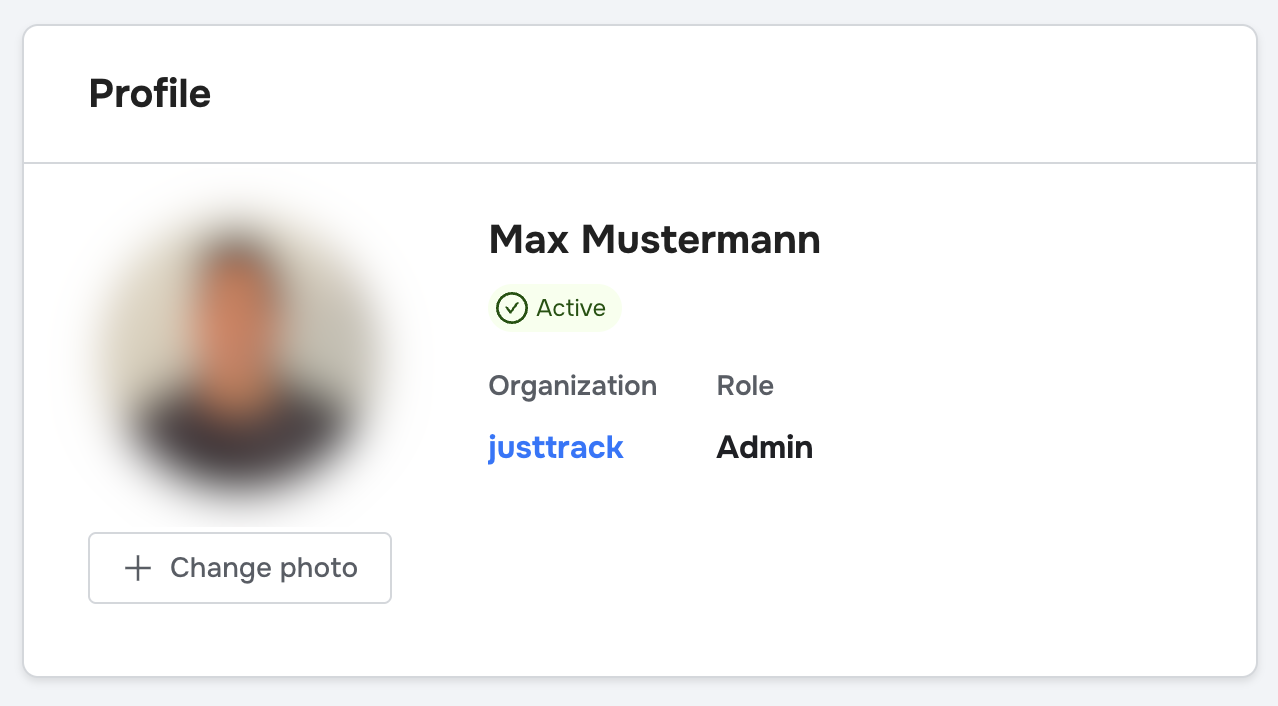Activate or deactivate a user
In this guide, you'll learn how to activate or deactivate a user.
An active user is one who can log in to the justtrack platform and who has access according to their role. An inactive user can't log in to justtrack at all.
Both of these statuses can be changed; an active user can be deactivated and an inactive user can be re-activated at any time.
There is no way to delete a user. You can only deactivate them.
Before you begin
Only Admins can view, create, and edit users. So, to complete the steps in this guide, you must first be an Admin for your organization.
Learn more about the Admin role in User roles and permissions.
Activate and deactivate a user
From the Main Menu, navigate to Admin > Managers. From here, there are two ways to activate or deactivate a user.
Use the user management table
From the User management view, you can see the user's current status in the table. Next to the Status, there is an Action column. With this column, you can activate or deactivate the user:

When you click the icon to activate or deactivate a user, you'll see a modal that asks you to confirm your decision.
Use the user profile
On the User management page, click a user's name to see their User profile. You can see the user's current status in the Profile section:

And in the Extra Settings section:

With the toggle in Extra Settings, you can activate or deactivate the user. Like in the User management page, you'll see a modal that asks you to confirm your decision.
Confirm your decision
However you activate or deactivate the user, their status is instantly changed when you confirm your decision. But don't worry, you can deactivate or reactivate a user at any time.
Conclusion
You've learned two ways to activate and deactivate a user's account in justtrack.
- From the User management page
- From the User profile page
If you want to restrict a user's permissions without completely deactivating their account, you can change their role.